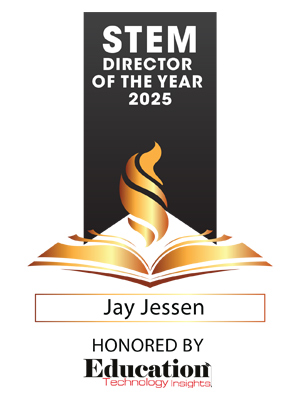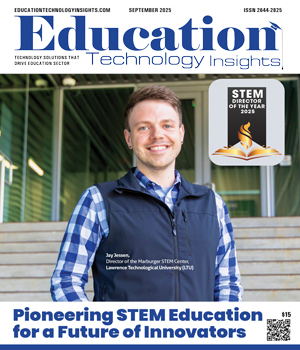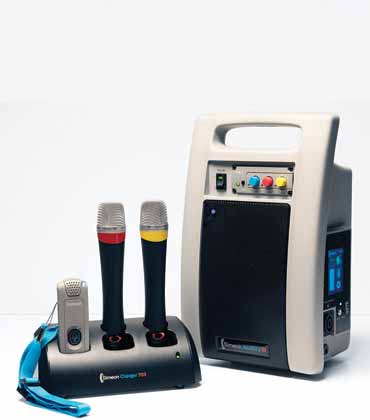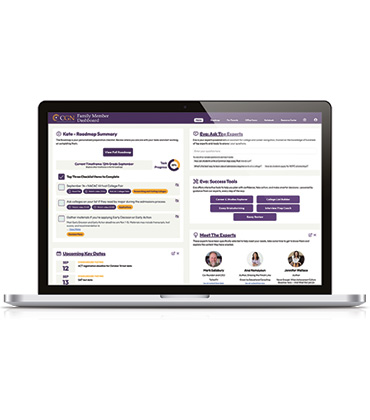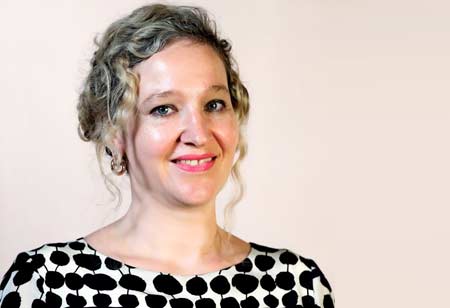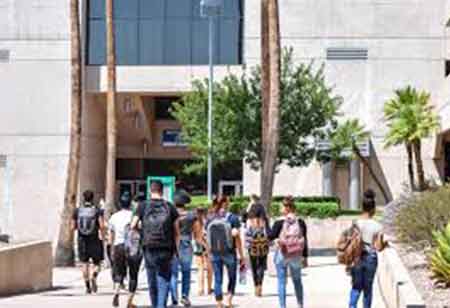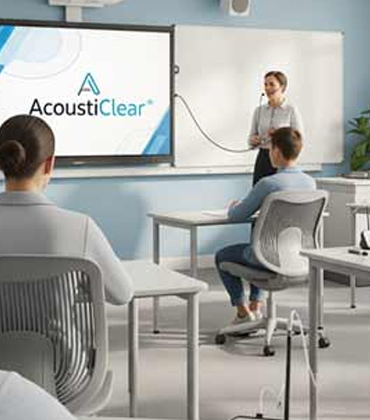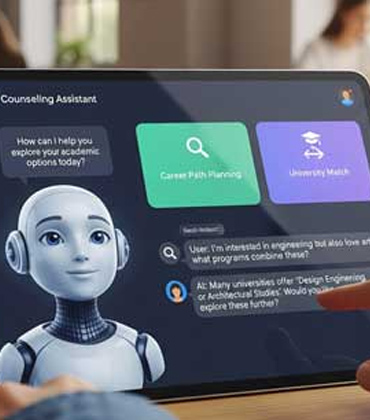THANK YOU FOR SUBSCRIBING
Be first to read the latest tech news, Industry Leader's Insights, and CIO interviews of medium and large enterprises exclusively from Education Technology Insights
In the ever-evolving world of STEM education, Jay Jessen stands out as a symbol of leadership and transformation. As the Director of the Marburger STEM Center at Lawrence Technological University (LTU), he has shaped the futures of thousands of students and emerged as a thought leader in the field. His career, driven by a passion for hands-on learning and the belief that STEM is for everyone, reflects the power of inclusive, community-driven educational initiatives. From an early age, Jessen’s introduction to STEM was far from conventional. While many of his peers received video games or popular trading cards, he asked for microscopes, chemistry kits, and other STEM related toys. He was encouraged to go outside and explore, to build, and be creative. This early encouragement from his parents sparked a lifelong passion for discovery. “I was lucky to have people around me who fostered my curiosity,” he reflects. “I never had to ask permission to pursue what interested me
Top Classroom Hearing Assistance Technology Company 2025
Simeon, a leading innovator in classroom audio amplification and assistive listening technology, is set to launch the world’s first classroom sound field system with Auracast, Bluetooth’s new broadcast audio standard. The Audita III, debuting in late 2025, moves beyond brand specific transmitters to a single global standard that simplifies audio management and adapts to every student’s needs. “Our mission has always been to level the playing field for students with hearing loss, giving them the same opportunity to participate as their peers,” says Jason Rude, president. “That mission has guided each step forward, including our systems already in classrooms today.” Simeon’s current Audita II systems make classrooms more inclusive by evenly carrying a teacher’s voice across the room and linking directly with hearing aids and cochlear implants. But Audita II achieves this through brand-tied accessories such as the Oticon EduMic, the Phonak Roger transmitter or the Cochlear MultiMic. In classrooms where students use different brands, multiple devices must be connected and managed. The setup is effective but often cumbersome in practice. Audita III changes that. The introduction of Auracast removes the need for manufacturer-dependent transmitters altogether. No matter the brand, one broadcast standard will reach every hearing aid and cochlear implant. A universal broadcast standard now delivers what once demanded splitters, custom wiring and multiple mics. The result is a classroom that is easier to manage, more reliable for teachers and fully inclusive for students. The impact is felt at every level. Students with hearing loss receive precise ear-level amplification and equal footing in discussions. Their peers benefit as pass-around microphones ensure that every voice is projected through the sound field system while simultaneously streamed directly into hearing devices, removing the hesitation from missing part of the conversation. Teachers avoid the strain of projecting their voices all day, relying instead on a lightweight pendant transmitter that carries speech naturally through the system. For schools, the shift means lower costs, less IT complexity and technology that remains relevant well into the future. .
Top AI Counseling Assistant 2025
High school guidance has a math challenge and AI can help. Families need support all year long but schools are only in session 180 days a year. In addition, for generations, students and families navigating the college and career process have struggled with uncertainty, confusion, and stress. College affordability, AI and job disruption is putting this into overdrive. The stakes are increasing, and reliable guidance has often been accessible only to those who could afford costly private counseling. College Guidance Network (CGN) was created to change that reality. By pairing the power of AI with the wisdom of hundreds of national experts, CGN has built a unique counseling solution designed to support families, schools, and colleges at every step of the journey. CGN AI is different from ChatGPT on many levels. It is trained by experts and gives relevant handouts in responses the way a real counselor would do. Personalized starter questions, library of AI college and career tools, and integration into a personalized project plan all make CGN AI best in class. AI Trained by Top Experts: At the center of CGN’s platform is Eva, its AI counseling assistant that draws on the knowledge of more than 400 leading experts, including well-known figures such as Malcolm Gladwell, Sal Khan of Khan Academy, and Angela Duckworth, author of Grit. It also incorporates the insights of college presidents, education policy leaders, and industry executives who understand both the present and future of work. Through this collective expertise, Eva provides families with trustworthy, nuanced guidance that stands apart in a crowded field. What makes Eva powerful is the way rigorous training meets real-world range, allowing it to move seamlessly from workplace dilemmas to personal struggles. No single guidance counselor can match its breadth. Eva helps families manage five core areas that define the postsecondary journey, including admissions strategy, financial aid and affordability, career pathways, parent-teen communication, and the impact of AI on future jobs. From choosing where to apply to understanding how technology will reshape career choices, Eva offers personalized starter questions, insights that are timely, comprehensive and relevant, and a suite of AI tools like a college list builder, job interview coach, and essay feedback tool. .
Student Engagaement Solutions Provider
Hawkes Learning, a pioneering force in educational courseware, is reshaping the academic landscape to meet the evolving expectations of students. Through mastery-based learning and tailored instruction, it elevates their academic achievements in college courses and paves the way for their success in the classroom and beyond. The intelligent platform provides students with more than just digital textbooks and lectures; it combines immediate, error-specific feedback with penalty-free practice and meaningful repetition to embrace mistakes as learning opportunities, guiding them toward not only the correct answer, but a true mastery of course concepts. The effectiveness of Hawkes’ solutions rests on its intuitive three-step learning path – Learn, Practice, and Certify. The learning phase incorporates instructional videos, interactive questions, and collaborative group activities. These resources strengthen understanding of the subject matter, making the entire learning process engaging and collaborative.
CXO INSIGHTS
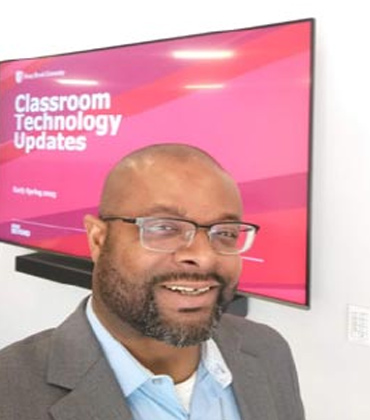
Embracing Classroom Technology to Support a Hybrid Model
Jarrod McFarlane, Director, Classroom Technology & Support Solutions, Stony Brook University

AI and Technology: Building a Healthy Future in Education
Lowell K. Davis, Vice President, Student Affairs, The University of Texas, Arlington
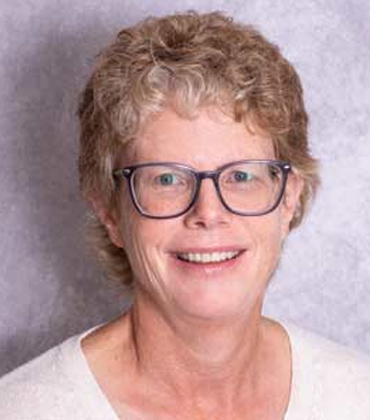
Advancing Online Education through AI and Student-Centered Design
Carolyn Stoll, Director of Online Instruction, University of Cincinnati

Humanizing the Digital: Faculty, AI, and the Transformation of Learning
Jean Mandernach, Professor, Grand Canyon University
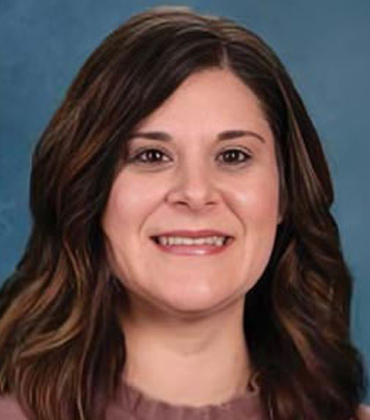
Faith Based Counseling Supporting Holistic Student Growth
Raina Foote, Director of Counseling, Rejoice Christian Schools
IN FOCUS
Building Seamless Auditory Ecosystems in the Modern Classroom
Interoperability in educational technology enhances learning for students with hearing impairments by ensuring seamless communication between devices, fostering an inclusive and supportive classroom environment.
AI-Powered Advising for the Modern University
AI enhances academic advising by analyzing data for personalized guidance, allowing human advisors to focus on meaningful mentorship and support, fostering a collaborative environment for student success.
EDITORIAL
Transforming Learning with AI, Accessibility and Student Engagement
Emerging technologies are reshaping the modern classroom, creating opportunities for more inclusive and effective learning. Hearing assistance systems, for example, ensure that all students, particularly those with hearing challenges can access instruction clearly, reducing comprehension gaps and fostering equitable participation. By removing audio barriers, these solutions enhance focus, minimize distractions, and improve overall classroom dynamics. AI-powered counseling tools further extend this capability by providing personalized academic and emotional support. Leveraging real-time data, these systems monitor student engagement, track performance trends, and offer targeted interventions. When students can fully absorb lessons through clear audio, AI-driven guidance becomes more actionable, enabling educators to identify challenges early and provide tailored support that boosts resilience and motivation. The convergence of hearing assistance, AI counseling, and student engagement technologies illustrates a holistic approach to education. Clear communication enables learning, AI-driven insights guide development, and engagement platforms encourage active participation. Together, they create classrooms that are inclusive, supportive and strategically designed to maximize learning outcomes. This edition of Education Technology Insights explores how classroom hearing assistance, AI-driven counseling, and engagement platforms are transforming learning. By aligning accessibility, personalized support, and interactive tools, schools can create inclusive, high-impact classrooms that empower every student, improve outcomes, and position institutions at the forefront of modern educational innovation. It features Jarrod McFarlane, Director, Classroom Technology & Support Solutions at Stony Brook University, who emphasizes the importance of aligning initiatives with the university’s strategic plan and priorities. He notes that universities must offer courses, classes, and similar opportunities to remote students to expand their reach and grow their student base. Raina Foote, Director of Counseling at Rejoice Christian Schools, highlights the need to equip students with practical tools to manage anxiety, stress, peer conflict, and other challenges, while fostering resilience, emotional regulation, and spiritual growth. We hope this edition offers valuable insights into how emerging technologies are shaping the future of education. With the integration of hearing assistance systems, AI-driven counseling, and engagement platforms, educators can create learning environments that are inclusive, supportive, and optimized for student success.
I agree We use cookies on this website to enhance your user experience. By clicking any link on this page you are giving your consent for us to set cookies. More info

However, if you would like to share the information in this article, you may use the link below:
www.educationtechnologyinsightsapac.com/edition/september-2025-16.html



